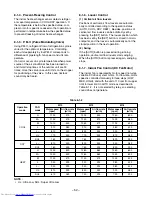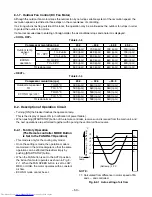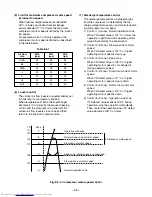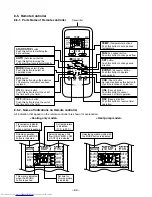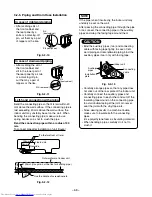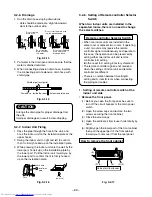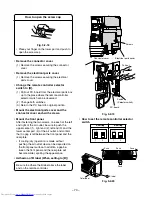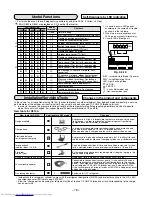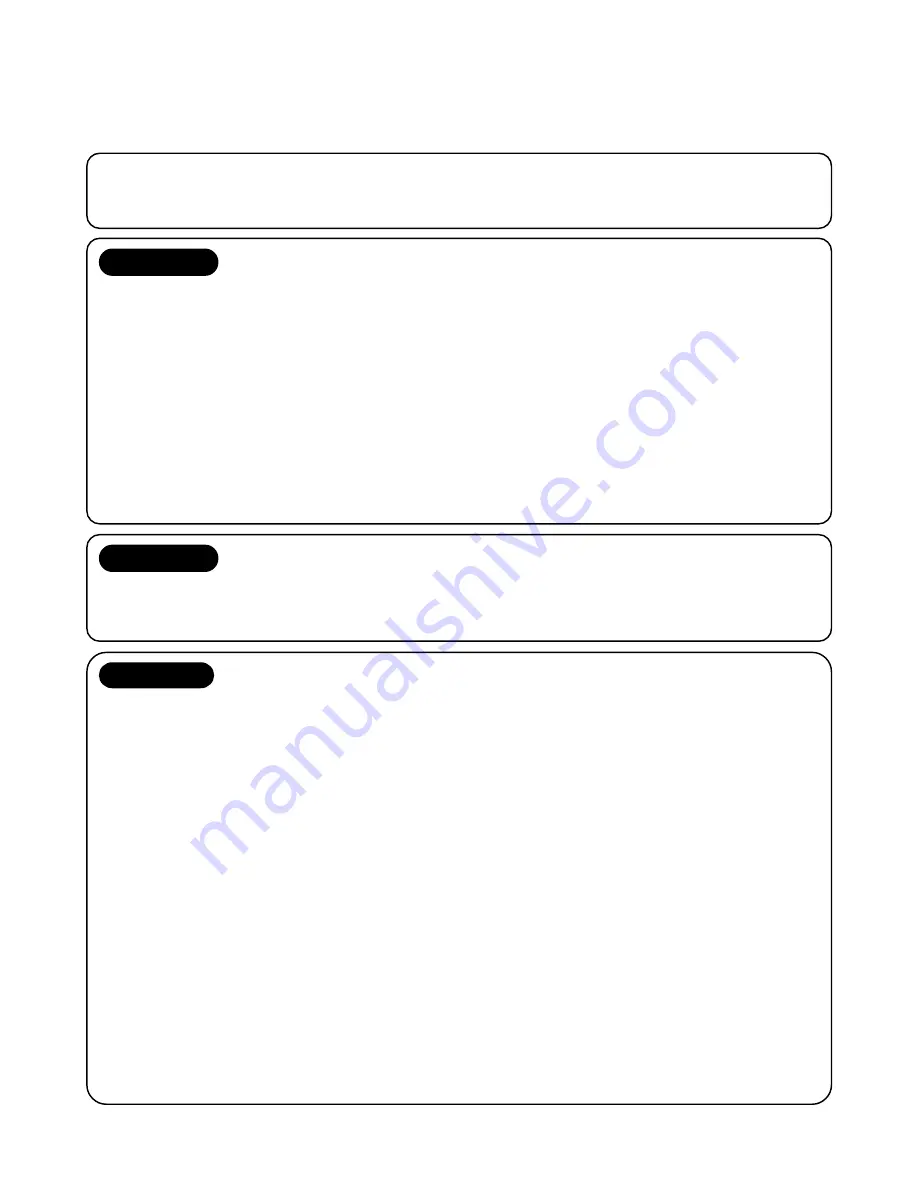
– 63 –
9. INSTALLATION PROCEDURE
9-1. Safety Cautions
For general public use
Power supply cord of appliance for outdoor use shall be more than polychloroprene sheathed flexible cord
(design H07 RN-F), or cord designation 245 IEC 66. (2.5 mm² or more)
CAUTION
New Refrigerant Air Conditioner Installation
• THIS AIR CONDITIONER ADOPTS THE NEW HFC REFRIGERANT (R410A) WHICH DOES NOT
DESTROY OZONE LAYER.
R410A refrigerant is apt to be affected by impurity such as water, oxidizing membrane, and oils because
pressure of R410A refrigerant is approx. 1.6 times of refrigerant R22. Accompanied with adoption of the
new refrigerant, refrigerating machine oil has been also changed. Therefore, during installation work, be
sure that water, dust, former refrigerant, or refrigerating machine oil does not enter into the refrigerating
cycle of new-refrigerant air conditioner.
To prevent mixing of refrigerant or refrigerating machine oil, the sizes of connecting sections of charging port
of the main unit or installation tools are different from those for the conventional refrigerant. Accordingly, the
exclusive tools are required for the new refrigerant (R410A) as shown below.
For connecting pipes, use new and clean piping materials with high pressure-tight force, which were made
for R410A only, so that water or dust does not enter. Moreover, do not use the existing piping because there
are problems about pressure-tight force and inner impurity in the existing piping.
CAUTION
TO DISCONNECT THE APPLIANCE FROM THE MAINS SUPPLY.
This appliance must be connected to the mains by means of a circuit breaker or a switch with a contact
separation of at least 3 mm.
One owner's manual is packed in the outdoor unit (with installation parts).
DANGER
ENGAGE DEALER OR SPECIALIST FOR INSTALLATIO
N
• FOR ELECTRICAL WORKS THE WIRING AND CABLES MUST BE PERFORMED IN COMPLIANCE
WITH NATIONAL WIRING STANDARD OR REGULATION.
IF INCORRECT AND INCOMPLETE WIRING IS CARRIED OUT, IT WILL CAUSE AN ELECTRICAL FIRE
OR ELECTRICAL SHOCK.
• USE THE SPECIFIED CABLE (1.0mm² or more) AND CONNECT TIGHTLY FOR INDOOR/OUTDOOR
CONNECTION. CONNECT TIGHTLY AND CLAMP THE CABLE SO THAT EXTERNAL FORCE WILL
NOT BE ACTED ON THE TERMINAL.
• WIRE ROUTING MUST BE PROPERLY ARRANGED SO THAT CONTROL BOARD COVER IS FIXED
PROPERLY.
• DO NOT DAMAGE OR SCRATCH THE CONDUCTIVE CORE AND INNER INSULATOR OF THE
CABLES.
• DO NOT DEFORM OR SMASH ON THE SURFACE OF THE CABLES. DO NOT PRESS OR FIX THE
CORD AND CABLES FIRMLY WITH STAPLES, etc.
• DO NOT USE THE INTER-CONNECTING CABLE. NEVER EXECUTE THE CONNECTION OF WIRING
WITH OTHER METHOD THAN THE APPROVED ONE. OTHERWISE, OVERHEAT, SMOKE OR FIRE
MAY BE GENERATED BY CONTACT ERROR.
• TURN OFF MAIN POWER SUPPLY AND BREAKER BEFORE ATTEMPTING ANY ELECTRICAL WORK.
MAKE SURE ALL POWER SWITCHES AND BREAKER TURN OFF. FAILURE TO DO SO MAY CAUSE
ELECTRIC SHOCK.
• CONNECT THE CONNECTING CABLE CORRECTLY. IF THE CONNECTING CABLE IS CONNECTED
BY WRONG WAY, ELECTRIC PARTS MAY BE DAMAGED.




